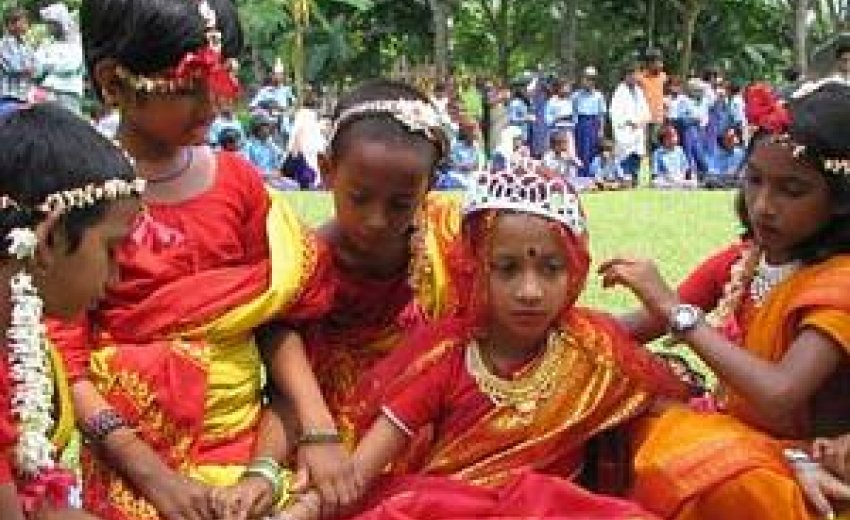Washington DC: A group of international leaders, known as The Elders, on Wednesday joined forces with the US secretary of state and UN agencies in the battle against the practice of child marriage.
In an interview to mark the first ever "International Day of the Girl Child", the chairman of The Elders said the practice had a critical impact on health, education, poverty and human rights.
"When it is so very blatant and clear that it is a practice that undermines so much of what people want to see happening, then you have to change it," Archbishop Desmond Tutu said.
The renowned human rights campaigner said he had the same "passionate commitment to seeing this change as I had fighting apartheid".
"For one thing, you dismiss more than half of humanity," by ignoring the problem of child marriage, said Mr Tutu, who, along with other members of The Elders, recently visited India and toured Ethiopia in 2011 to hear first-hand from child brides.
Addressing a group of US girl scouts on Wednesday, US Secretary of State Hillary Rodham Clinton said every year, 10 (m) million girls under the age of 18 became child brides "many of the under the age of 16".
She added that providing girls with education was crucial in combating the problem as it helped to empower them.
According to the United Nations Childrens' Fund, UNICEF, one in three girls in the developing world is married before 18.
Child marriage occurs around the world, but is concentrated in South Asia, with nearly half the reported cases, as well as sub-Saharan Africa, Latin America and North Africa.
UNICEF describes the practice as a "serious human rights violation", reporting that child brides face a higher risk of death and injury due to early sexual activity, higher infant-mortality rates, incomplete education and higher instances of domestic abuse.
In their battle to end child marriage, The Elders helped bring together some 180 international organisations to form "Girls Not Brides", a global partnership to end the practice by 2030.
Speaking at the same event as Ms Clinton, Mr Tutu said that doing so would help create a "better world".
"We will be able to have dealt a very, very strong blow against poverty, against disease. We will have helped many, many, many children become educated," he said.
Thursday marks the first ever "International Day of the Girl Child".
In December 2011, the United Nations General Assembly adopted a resolution declaring October 11 as the day to recognise girls' rights and the unique challenges they face around the world.
